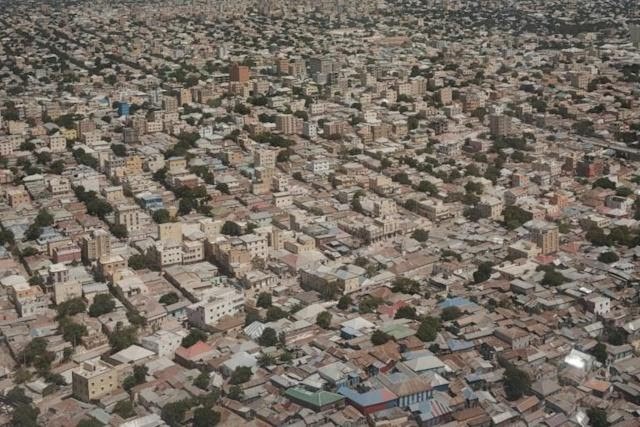
Tuesday February 22, 2022
By Marion DOUET
Election delays could mean IMF’s planned reforms will not be endorsed in time for its review by mid-May.
One of the poorest countries in the world, Somalia is struggling to recover from decades of civil war and has been battling an Islamist insurgency for decades (AFP/YASUYOSHI CHIBA
The IMF’s programme in Somalia is due for a review in mid-May, but election delays mean that a new administration may not be ready to endorse planned reforms in time, Laura Jaramillo Mayor, the fund’s mission chief for the country, said on Tuesday.
“That review of the IMF supportive programme for Somalia needs to be completed by May 17, if it is not completed by that date the programme automatically terminates,” she told AFP as she began a mission to the Horn of Africa nation.
Somalia’s polls are more than a year behind schedule, with voting for the lower house of parliament due to be completed by Friday – a deadline many observers expect the country to miss, with more than 100 seats still pending.
Under the terms of the IMF programme, Somalia’s debt could fall to $557m or about six percent of its estimated gross domestic product as early as “next year”, allowing Mogadishu to attract more funding from international partners and help develop its private sector, Jaramillo said.
One of the poorest countries in the world, Somalia is struggling to recover from decades of civil war and has also been battling an operation waged by armed fighters for years. Nearly 70 percent of its population live on less than $1.90 a day.
Every month, the country’s federal government runs short of $10m to cover crucial expenses such as staff salaries.
But Jaramillo said Somali authorities have worked hard to strengthen government institutions, particularly in terms of tax collection and controlling public spending.
‘Lot of potential’
Somalia’s gross domestic product grew by two percent in 2021, according to the IMF, which has been working with the country since 2015.
The expansion was driven by strong household consumption, thanks to remittances from the Somali diaspora, as well as livestock exports, particularly to Gulf nations.
Remittances in 2021 amounted to more than $2bn, the equivalent of 28 percent of GDP, according to the IMF, which forecasts growth of 3.2 percent in 2022.
"Overall, we see a lot of potential for Somalia’s growth for 2022 and going forward,” Jaramillo said.
But the year has begun on a difficult note for Somalis, with a severe drought affecting four million people, a quarter of its population, and forcing more than 550,000 to leave their homes in search of food and water.
The IMF will have to revise its growth forecasts if the next rainy season also fails, said Jaramillo.
The government is currently offering financial assistance to some 200,000 impoverished households in a programme supported by the World Bank to combat the cumulative effects of droughts, locust invasions and the COVID-19 pandemic.